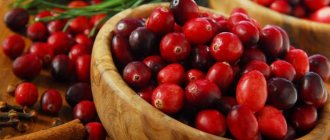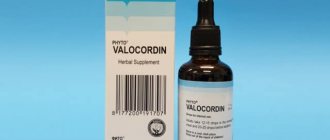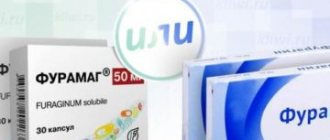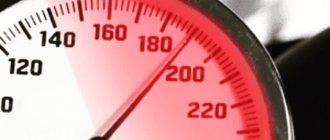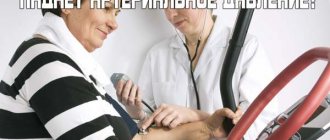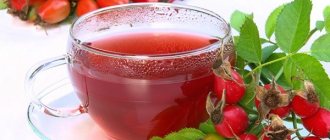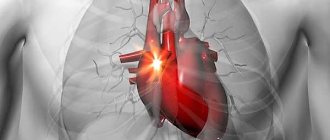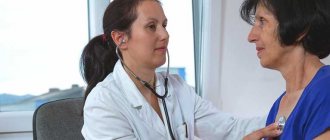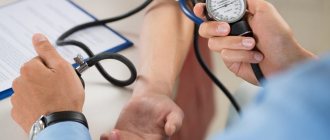Tablets for tachycardia
To normalize the pulse, drug treatment is carried out: the doctor prescribes medicine for tachycardia with high blood pressure, taking into account the type of disease, its severity and the presence of concomitant diseases. In addition, the patient's individual response to different drugs is taken into account. Appropriate medications to reduce heart rate include anti-anxiety medications and antiarrhythmics. If a patient has hypertension along with tachycardia, medications that can lower blood pressure are added to the list of recommended medications.
Sedatives
An attack of tachycardia sometimes catches even a healthy person who does not suffer from heart pathologies. This can be caused by severe stress or other factors. If normal blood pressure is observed, then regular sedative medications will help. Sedatives are also used for vegetative-vascular dystonia, as a result of which a person’s normal heart rhythm is disrupted. Sometimes the frequency of blows reaches 100-150 per minute. Sedatives for tachycardia with high blood pressure are divided into synthetic and natural.
How to lower your heart rate with natural medicines? For this use:
- drug Persen (based on lemon balm and valerian);
- valerian (available in two forms - solution and tablets);
- motherwort tincture.
Synthetic drugs for tachycardia that calm the nervous system are:
- Ritmilen;
- Verapamil;
- Relium;
- Ethacizin.
Antiarrhythmic drugs
The cardiologist prescribes medications in this group for various heart rhythm disorders - atrial fibrillation, ventricular or paroxysmal tachycardia. Antiarrhythmic tablets are used for preventive purposes, but with long-term treatment they accumulate in organs and tissues, leading to serious diseases. There are 4 types of these drugs for tachycardia with high blood pressure:
- Sodium channel blockers (fast). The group includes: Novocainamide, Quinidine, Aprindin, Pyromecaine, Allapinin, Bonnecor.
- Beta blockers. Representatives of this group are Nadolol, Propranolol, Escomol, Kordanum, Anaprilin.
- Potassium channel blockers: Sotalol, Bretilium tosylate, Amiodarone.
- Calcium channel blockers (slow). These include Sotalol, Bretylia tosylate, Veropomil (dilates coronary vessels).
Cardiac glycosides
Medicines in this group are prescribed to patients with sinus tachycardia, which is caused by anemia, increased adrenal function, cardiomyopathy, congenital heart defects or vascular pathologies, etc. Medicines of this type normalize the strength of myocardial contractions, as a result of which the heart rate decreases. How to reduce heart rate at home? For this purpose, cardiac glycosides are used, for example:
- Digoxin;
- Digitoxin;
- Strophanthin.
Thyrostatic drugs
Before treating tachycardia, a cardiologist determines the cause of the disease. Attacks of accelerated heart rate can result from excess hormones secreted by the thyroid gland. High levels of triiodothyronine thyroxine result in a faster metabolism and significantly increase the stress placed on the cardiovascular system. Thyrostatic tablets for tachycardia and palpitations are:
- Mercazolil;
- Potassium perchlorate;
- Microiod.
How does the thyroid gland affect blood pressure? Can blood pressure increase from the thyroid gland?
The body is a complex system of interconnected biochemical metabolic processes. These processes are controlled by the endocrine glands, maintaining an optimal regime. Blood pressure is directly related to the production of hormones by the endocrine system, and one of its regulators is the thyroid gland.
Dependence of pressure on the functioning of the thyroid gland
When the pressure begins to “dance”, giving a variety of numbers on the tonometer that exceed the norm, a person looks for the reason. It’s good if you go together with a doctor: the doctor has knowledge. Based on the totality of signs, he can guess where the failure occurred already at the first appointment.
Thyroid hormones produced by the gland actively affect vascular tone. They also keep the strength of heart contractions and their frequency under control. A hormonal storm, an increase in the release of hormones, constricts blood vessels through this mechanism. Heart rate increases, sharply, to crisis levels, blood pressure may increase. This explains how the thyroid gland affects blood pressure through an excess of hormones.
Signs of a connection between blood pressure and thyroid pathology
Specific signs will help to suspect that the cause of hypertension is hidden in excess secretion of thyroid hormone, and the disease is associated with the thyroid gland.
Against the background of high blood pressure, a person experiences symptoms:
- Significant increase in heart rate;
- A feeling of vague discomfort behind the sternum;
- Unmotivated irritability: even a rustle can cause an “explosive” reaction, everything is wrong for a person;
- Frequent feeling of hunger, even after eating;
- Subfebrile (low) temperature;
- Migraine;
- Shortness of breath, lack of air;
- Feeling of constant overwork;
- The eyes become bulging;
- There may be convulsions or seizure readiness;
- A swelling of the neck is formed - a goiter.
When at least some items on the list coincide with the condition, it’s time to see an endocrinologist. The thyroid gland is clearly not normal, and the thyroid gland and blood pressure have a close relationship.
If a person’s blood pressure begins to rise, and the reasons have not yet been established, he does not know whether this could be due to the thyroid gland. But having familiarized yourself with the signs indicating the possibility of such a cause, it’s worth thinking about: pressure from the thyroid gland can happen.
What should a sick person do?
You need to visit an endocrinologist. A doctor of this specialization will determine whether such a connection really exists. If a person has developed hypertension, and at the same time the thyroid gland is sick, then it will not be possible to normalize the pressure without treating the endocrine organ.
It is not uncommon for a patient to go to a therapist or visit a cardiologist for years, even decades. Complains of hypertension. They change his medications, one after another, stronger and newer, but they do not have the expected effect.
Local doctors sometimes become irritated and label the patient as a hypochondriac. They are redirected to neurologists, psychotherapists, even psychiatrists. There is a flow of patients, a lack of time, a lot of paperwork, and here is an eyesore that is not amenable to drug therapy. And he himself is nervous and irritable.
Sometimes the patient needs to think for himself: what is happening? If your therapist hasn’t sent you to an endocrinologist, go there yourself. You can first test yourself for the quantitative presence of iodine in the body.
Iodine is the main element that affects the health of the thyroid gland. Its deficiency or excess leads to various organ dysfunctions and diseases.
The check is simple. Apply a “pattern” - a mesh of iodine - to the skin with cotton wool or an ear stick. If the mesh disappears (absorbs) very quickly, after a couple of hours, the body experiences iodine deficiency. Absorbed overnight - about normal. It remains in the morning: there is too much iodine in the body.
A distortion in any direction causes a failure of processes in the thyroid gland. There is either insufficient secretion of hormones or their excess.
After listening to the complaints, the endocrinologist will determine at the appointment whether the thyroid gland affects blood pressure in a particular case. He will see the preliminary picture. An accurate conclusion will be given after the examination.
Causes of hormonal imbalance in the thyroid gland
The cause of impaired hormone synthesis may be:
- Tumor processes (benign or oncological);
- Chronic inflammatory intoxication in the body;
- Diseases of the endocrine system - any glands included in it.
Increased secretion of thyroid hormones by the thyroid gland is not always caused by its pathology. Often this is the result of a physiological reaction to stressful situations, or to the stress of physical overload. The secretion of hormones increases, this helps in overcoming one-time emotional or physical increased stress.
The whole body is at risk. Diseases may develop:
- Hypertension;
- Heart ailments with severe pain symptoms;
- Fainting;
- Migraine;
- General weakness.
It’s not for nothing that hypertension is listed first. It develops more often than other diseases due to stress. There is even a concept: “hypertensive character” - the character of a person who reacts sharply to stress factors. And he reacts this way from a surge of thyroid hormones that spur emotions, the effect of which on blood pressure has been scientifically proven.
With frequent stress, neurological disorders are added, common to hypertensive people and people suffering from thyroid diseases:
- Depression;
- Panic attacks;
- Anxious suspiciousness;
- Increased irritability.
Elements of autonomic symptoms inherent in dystonic manifestations are also included: various pain sensations in the body, tremor of the muscles of the face and hands. The stomach may be upset and local cramps may occur.
This makes diagnosis difficult, but a competent specialist will figure it out. In doubtful cases, he will involve examinations. If you do not apply in time, severe, stable hypertension may develop. But even this can be “taken” by preliminary treatment of thyroid problems.
Thyroid hypertension
In medicine, a hormonal imbalance dependent on the functioning of the thyroid gland, accompanied by high blood pressure, is called thyroid hypertension. This is not just a term - a serious diagnosis.
Each system of the body is a system to work in interaction, harmoniously. The thyroid gland is influenced by all components of the endocrine system:
- Adrenal glands;
- Ovaries or testes (according to gender);
- Pancreas;
- Pituitary gland;
- Epiphysis;
- Hypothalamus.
The thyroid gland itself influences partners in the system to a large extent. If all departments are healthy, there is a coordinated, harmonious interaction programmed by nature. If one person stumbles, he knocks down the entire chain, sending distorted impulses into the system.
The adrenal glands are the first to react. They increase the secretion of catecholamines, which provoke vasoconstriction (adrenaline, norepinephrine), increase the central nervous system and, by these actions, increase blood pressure. Medicines that lower it help in this case only slightly and not for long. Because this is an attempt to relieve symptoms without eliminating the root cause.
Advice to hypertensive patients who have not been able to normalize their condition for a long time, to choose medications: consult an endocrinologist. The likelihood that the origins are there, in the endocrine system, is high. Don't waste time: the risk is great.
Additional signs of a connection between hypertension and thyroid pathology
A healthy thyroid gland maintains homeostasis of the two main hormones it produces:
- Thyroxine;
- Triiodothyronine.
The first is “relaxing”, the second is “stress hormone”. They balance, balancing each other. Both are necessary for the regulation of adaptation reactions to the external environment. They are responsible for thermoregulation, and a person can withstand almost abnormal heat and cold.
If, with hypertension that is not losing ground, a person is cold in normal weather - to the point of trembling, tremors of the hands, or he is hot without exercise: a reason to think. This hypertension may be associated with hyperthyroidism - increased secretion of hormones caused by pathology of the thyroid gland.
Thyroid and hypertension are often linked. Get checked, be on the safe side if the symptoms coincide. It might even save your life. By correcting the hormonal imbalance, the doctor will relieve you of the accompanying hypertension.
What medicine to take for high blood pressure
Hypertension is one of the key causes of the development of heart and vascular diseases such as myocardial infarction and stroke. Symptoms of the disease are:
- dizziness;
- vomit;
- headache;
- dyspnea;
- blurred vision;
- nosebleeds;
- insomnia;
- swelling of the limbs.
If the doctor makes such a diagnosis, therapy should include not only medications for tachycardia with high blood pressure, but also changes in the patient’s lifestyle. To improve his condition, the patient must stop smoking and drinking alcohol, balance his diet and give up salty foods. Antihypertensive drugs for cardiac tachycardia are prescribed in cases where the risk of stroke or heart attack is high. The duration of therapy and dosage are selected exclusively by the doctor.
The specialist prescribes the safest medications based on the stage of the disease and the general condition of the patient’s body. While taking effective blood pressure-lowering medications, addiction to the active substances may develop, so it is advisable to periodically replace the tablets with others. To improve the quality of treatment of hypertension, symptomatic therapy is simultaneously carried out, containing preventive measures against secondary pathologies - cardiac ischemia, nephropathy, diabetes, etc.
ACE inhibitors
As a rule, such medications are prescribed in the presence of diabetes mellitus. Take ACE inhibitors half an hour before meals, and the dosage and duration of the course are selected by a cardiologist. The main danger in treating high blood pressure with such drugs is the increase in potassium levels in the human body. In increased quantities, the substance has a negative effect on the functioning of the heart and leads to convulsive muscle contractions.
Despite the side effects, ACE inhibitors show good antihypertensive effects. To reduce the risk of negative consequences of taking medications for high blood pressure, you should strictly adhere to the dosage prescribed by your doctor. According to clinical studies, ACE inhibitors help prevent the development of heart failure when taken in small quantities. It is prohibited to take medications during pregnancy and lactation. This group of drugs includes:
- Monopril;
- Enam;
- Univasc;
- Alteis;
- Aseon;
- Kapoten;
- Mavic.
Beta blockers
Medicines of this type are among the most effective for high blood pressure. Their use is permitted only as prescribed by a doctor. The effectiveness of beta-blockers is due to the ability to reduce the level of adrenaline in the blood, due to which the walls of blood vessels dilate. It is prohibited to take such medications for arrhythmia, bradycardia, asthma, emphysema, pregnancy (in this case, it is better to use folk remedies to lower blood pressure). When taking medications, be sure to monitor your pulse: if the frequency is high, reduce the dosage.
Beta blockers include:
- Anaprilin;
- Atenolol;
- Metoprolol;
- Timolol;
- Acetutolol;
- Bisoprolol;
- Labetalol.
Diuretics for hypertension
An effective cure for tachycardia with high blood pressure is diuretics. They have a pronounced diuretic effect and are recommended for use by elderly patients. Experts, as a rule, prescribe thiazide diuretics together with calcium antagonists for the treatment of hypertension. It should be borne in mind that these medications are not advisable to take in large doses, since they remove minerals from the body. How to treat tachycardia and high blood pressure? To do this, one of the following drugs is prescribed:
- Amlodipine;
- Hydrochlorothiazide;
- Indapamide retard;
- Triamterene;
- Amiloride.
vrachmedik.ru
Tachycardia and high blood pressure
A very rare combination. Although the human body does not have a mechanism that jointly regulates both blood pressure and heart rate. The heart rate is controlled by the so-called third reflexogenic zone (the place where the vena cava flows into the right atrium), when irritated, it primarily causes an increase in heart rate, but not an increase in blood pressure.
Pulse pressure depends on the work of the cardiac motor center of the medulla oblongata, which affects the systolic volume of the heart and no nerve fibers from the so-called third reflexogenic zone approach it.
And if tachycardia is observed with an increase in blood pressure, then in this case other regulatory mechanisms by the body are already involved.
In general, during stress and physical work, the level of adrenaline in the blood increases sharply, thereby increasing the minimum or vascular blood pressure.
Adrenaline in the blood is gradually destroyed by special enzymes, and also, in the case of adequate physical work for the body, by endorphins. By the way, it has long been proven that A-cells of the pancreas also produce endorphin. It is worth noting that alcohol is a good adrenaline inhibitor. But this does not mean that you need to join it. However, it would be wrong not to know about this.
Any physical work performed increases your heart rate. And this is natural! Blood pressure should not increase because of this: the amount of blood that the heart pushes into the aorta will be exactly the same in volume both at a heart rate of 60 beats/min and at a heart rate of 160 beats/min, and the aorta has time to return to its original state, in which she remained before the contraction began. And this is logical!
But this doesn't happen forever. After 180 beats/min, with a decrease in heart rate, contrary to the laws of physiology, blood pressure begins to increase! In this case, the filling time of the ventricles of the heart increases.
If the physical activity was long-term and adequate for the body, then after it is completed, after 10-15 minutes, blood pressure begins to decrease even in “malignant” hypertensive patients.
This factor underlies the physical treatment of hypertension, which, like the medicinal factor, has every right to exist.
However, if the physical activity was too much for the body, then the person’s health condition may worsen: high blood pressure will remain elevated for a long time.
There will be no significant positive effect in the case of very low physical activity - protein synthesis of the heart muscle will lag behind its breakdown, which will ultimately lead to detraining and flabbiness of the entire myocardium.
Under stress, there is a sharp release of catecholamines, an increase in vascular and pulse blood pressure, an increase in skeletal muscle tone and a very long return to the original state.
Therefore, the mental factor is still considered the dominant cause of hypertension.
Remedies for rapid elimination of high heart rate
An attack of palpitations can occur even in a healthy person who has no previous history of heart problems. This can happen, for example, due to a stressful situation. With normal blood pressure, the attack can be stopped with sedatives:
- Valerian,
- Persen, which contains valerian and lemon balm,
- Motherwort in tablets.
You can also take synthetic drugs:
- Relium,
- Ethacizin,
- Ritmilen,
- Verapamin.
These drugs have a mild effect, but are only suitable for normal blood pressure. Some medications can lower or increase it.
An arrhythmic attack with high blood pressure requires immediate treatment, since the blood puts a lot of pressure on the walls, and the acceleration of its movement can cause ruptures of blood vessels or pose a danger to the heart. Medicines should not only normalize heart rate, but also reduce vascular tension.
The most popular drugs:
- Diroton, which dilates blood vessels, causing rapid relief of hypertension,
- Corinfar blocks calcium channels in the heart muscle, reducing the heart's need for oxygen, which leads to normalization of the rhythm,
- Enap corrects the functioning of the heart.
Attacks of tachycardia during hypertension are extremely dangerous, so it is necessary to eliminate them with medication, which is immediately done by a cardiologist.
Tachycardia also occurs with low blood pressure; in this case, special therapy is necessary, since the causes of hypotension are dangerous to health, but the harm increases if they are combined with an accelerated heartbeat.
Drugs that eliminate symptoms should not only medically bring the heart rate back to normal, but also increase vascular tone. When the necessary medicine is not at hand, clean water will help. You should quickly drink 1 liter of water, and after 15 minutes the condition should improve.
Any other medications should not be taken without consulting a doctor, as hypotension may increase, leading to fainting.
Almost all medications are sold in pharmacies without a prescription, but therapy for tachycardia should be carried out strictly according to the doctor’s instructions. Medicines can be taken after the causes of the disease have been determined.
How dangerous is this condition and is it a threat at all?
Yes, an increase in heart rate along with blood pressure poses an immediate danger not only to health, but also to life. What are the main consequences of increased cardiac activity?
- Thromboembolism may form due to the destruction of red blood cells and activation of the blood clotting process. This is extremely dangerous. A blood clot can block an artery and be fatal.
- With a long-term pathological process, especially if tachycardia is a frequent companion of the patient, the immune system is suppressed. This happens due to disruption of metabolic processes at the general level.
- Development of coronary heart disease. The main factor in the development of the problem is hypoxia of myocardial tissue. The next step is a heart attack.
- Injury as a result of unexpected fainting. Impaired consciousness or syncope may develop unexpectedly in a dangerous environment.
- The long course of the pathology leads to cardiogenic shock with a sharp drop in blood pressure. The result is the death of the patient.
- Finally, sudden cardiac arrest and death are possible.
Valerian for high or low blood pressure
.
Valerian is used to lower blood pressure because it:
- dilates blood vessels,
- calms the nervous system.
Thus, blood circulation is normalized and blood pressure is lowered. However, the process occurs rather slowly, so if you urgently need to lower your blood pressure, this medicine will not work.
The desired result can be achieved only after 2-3 months of taking the medicine, since valerian acts gradually. Before using the product, you should consult your doctor.
Since valerian has a calming effect, it may interfere with people who need high concentration and quick reactions when working. However, in small doses, valerian has a tonic effect.
Valerian is included in various medicines. Preparations with this plant help lower blood pressure. A mixture with sodium bromide, lily of the valley and valerian has the following effects:
- helps with insomnia,
- helps reduce the symptoms of vegetative-vascular dystonia,
- reduces blood pressure.
Valerian, dissolved in water or in the form of a decoction, lowers blood pressure. To get this effect, you should add moderate physical activity to the medication and improve your diet.
Among other things, valerian has the following properties:
- has a positive effect on the digestive organs,
- helps with flatulence and gallbladder dysfunction,
- helps treat hypertension in the early stages,
- increases performance, eliminates headaches,
- reduces the negative manifestations of bronchial asthma and pneumonia.
The drug is used to treat hypertension, but it should be used with caution as improper use for high blood pressure will worsen the situation.
Treatment with valerian for hypertension should be carried out with adjusted dosages.
Hypotonic patients should avoid this drug to avoid lowering their blood pressure even further. Negative consequences are possible if you use valerian for more than three months.
Folk remedies for tachycardia
All folk remedies are aimed exclusively at reducing the symptoms of tachycardia. They do not eliminate the causes of the disease, so they are not suitable for full treatment. Most traditional methods do not take into account a person’s blood pressure, so this treatment is safe only with normal blood pressure.
Treat symptoms of tachycardia effectively with various herbs that can slow the heartbeat. To prepare healing tea you need to take 1 small spoon of dried raspberry, lemon balm and chamomile leaves. Pour 300 ml of hot water over the herbs and let it brew for several hours. Drink 250 ml of decoction diluted with clean water.
To prepare a decoction of peppermint, you need to bring 0.4 liters of water to a boil, add half a teaspoon of dry leaves of motherwort, peppermint and nettle. The product is cooked for 20 minutes. After infusion, it should be poured through cheesecloth into a glass container. Take a glass of medicine before meals several times a day.
You can treat the symptoms of tachycardia with anise jelly. Dried anise and flax seeds (half a teaspoon each) are ground using a coffee grinder. Boil 500 ml of water in an enamel container, add a teaspoon of valerian, motherwort and chamomile. The herbs are boiled for 1 minute, then the seeds are added and the mixture is boiled for another 20 minutes. Then the medicine is passed through gauze and infused in a glass container. You need to take the product 2 times a day on an empty stomach.
Diuretic teas help treat symptoms of hypertension. Removing excess fluid from the body is the basis of the treatment of this disease. Therefore, with high blood pressure, it is recommended to use diuretic teas, which are prepared from special pharmacy preparations.
You can also treat hypertension at home by regularly making tea from peppermint, motherwort and horsetail, brewed one teaspoon at a time.
About tachycardia
There are 2 types of tachycardia: physiological (sinus) and pathological.
Causes of the sinus type of the disease: physical overload, bad habits (smoking, alcohol abuse and even coffee), stressful conditions. Physiological tachycardia during short attacks can be treated using non-medical methods. In case of serious heart pathology, you should definitely visit a doctor.
Diseases (causes) that can cause an increase in heart rate:
- Poisoning of the body with toxic agents, chemicals, alcohol.
- Large blood loss, trauma, anemia.
- Viral diseases that occur with high fever.
- Neuropsychiatric disorders.
- Dehydration of the body, resulting in a lack of magnesium and potassium.
- Vegetative-vascular dystonia.
- Disturbances of the endocrine system.
- Physical inactivity.
- Treatment that involved the use of potent drugs.
Treatment for heart palpitations due to high or low blood pressure varies.
To simultaneously relieve a surge in blood pressure and increased heart rate, it is recommended to take motherwort in the form of a tincture or decoction. From medications - Corvalol tincture or Validol tablet.
First aid (when medications and pills are not used):
- Take a deep breath, hold your breath and strain in the chest area. The attack will pass.
- Soak your face in cold water for a few seconds.
- Press your palms onto your eyeballs. Repeat several times.
Essential oils for attacks (hypertension or hypotension with increased heart rate):
Prepare a bottle with a mixture of the following essential oils: lemon balm, lavender, anise, peppermint, pine, eucalyptus, fennel, cinnamon, sage, nutmeg, thyme, cloves. You need to inhale the aroma by dropping a few drops on your wrist or handkerchief. It is not necessary to use all components without exception.
Motor mode:
- Morning exercises (without overload). Recommended exercises are arm swings.
- Swimming.
- Walking (calm pace).
What to do to alleviate the condition
With tachycardia accompanied by high blood pressure, pheochromocytoma may be detected in the body. This is a tumor that produces adrenaline. Often the disease occurs in combination with frequent and severe headaches.
An attack of tachycardia and hypertension can be eliminated by taking a decoction or tincture of motherwort; Corvalol and Validol also help.
Knowing several techniques that alleviate the patient’s condition will help in emergency cases when there are no drugs at hand. The following measures should be taken:
- take a deep breath, holding your breath with emphasis on the chest, this will help ease the attack;
- wash with cold water;
- Press your palms on your eyeballs several times.
Tips for people with heart palpitations
- Stick to a strict daily routine, taking into account the completion of necessary tasks and time for rest.
- Overeating and drinking too much liquid at once are the reasons for the rise of the diaphragm and increased heart rate.
- It is necessary to stop smoking, limit alcohol, coffee and strong tea. Tea and 1-2 cups of coffee a day, if you really want it, can be diluted with milk, it neutralizes the effect of caffeine.
- Drink natural juices, chicory, or cocoa.
- Don't forget about water procedures. After morning exercises, first take a warm shower, and then the water temperature should be reduced little by little to room temperature.
- Physical education classes and walking are shown. There is no need to engage in fasting - it is better to moderate physical activity, avoid sweets and fatty foods, and a large amount of carbohydrates. It is necessary to remove excess weight, since fat deposits in the body are penetrated by blood vessels, and in order to pump blood through them, the heart is forced to speed up the rhythm of its work.
- You need to protect yourself from stress, emotional and physical overload.
- Normalize sleep, do not watch detective stories and TV series at night.
Prevention
All doctors’ recommendations regarding the prevention of certain diseases come down to maintaining a healthy lifestyle. This is no exception for cardiovascular diseases.
A healthy lifestyle implies adherence to such principles as:
- Proper balanced nutrition.
- A daily routine that includes proper rest (overwork should be avoided).
- Moderate physical activity.
- Elimination of bad habits (smoking, alcohol).
- Emotional stability.
Therapeutic exercises or visiting the pool will be useful. Each person has their own recommendations and possibilities: some people like yoga, while others can get by with a simple massage or acupuncture.
If these simple points are followed, many diseases will simply bypass a healthy body. In addition, this lifestyle also contributes to the treatment of tachycardia. You can read more about treating tachycardia at home here.
Treatment with herbal decoctions for tachycardia
When low, it is better to use alcohol tinctures):
- Take 1 tbsp. spoon of Adonis herb, pour a glass of water. Boil in a saucepan over low heat, cool, discard the herb. Take 20 g before meals.
- Pour boiling water (1 cup) over a tablespoon of chicory root and let it brew for an hour. Strain, take 50 g after meals.
- Add motherwort and calendula flowers a pinch each to a glass of boiling water, leave for at least two hours in a thermos. Strain and drink after meals without cooling.
- Pour motherwort and crushed hawthorn fruits (3 tablespoons each) into a 1 liter thermos. boiling water Leave for 5-6 hours, then strain. Drink half a glass 3 times a day.
- Pour a tablespoon of lemon balm leaves into 0.2 liters. boiling water, cool. Use 3 times a day.
- For increased heart rate and hypertension, soothing teas have a good effect: add one teaspoon of herbal raw materials to a glass of boiling water or regular weak tea: motherwort, tricolor violet, medicinal valerian, linden blossom or hawthorn.
- Pour two tablespoons of chopped herbs and St. John's wort flowers into 0.5 liters. boiling water Leave until it cools, strain. Drink half a glass 3 times a day.
- A decoction of a mixture of herbs: hawthorn flowers – 1 tsp. , calendula herb – 1 tsp, chicory root – 1 tsp, lovage leaves – 2 tsp. Pour 1 liter of boiling water, boil for 1 minute, cool, strain. Drink up to 7 times a day, 1-2 tablespoons.
- Marsh cudweed grass. At 2 tbsp. spoons, take ½ liter of boiling water, let it brew, strain. Drink 3 times a day, ½ glass.
- 1 tbsp. Pour a spoonful of small periwinkle into a glass of water. Boil, simmer for 20 minutes, cool, strain. Drink a third of a glass before each meal.
- Hawthorn, horsetail, knotweed. Take in proportion 1:2:3, mix. Pour 10 grams of the mixture with a glass of boiling water and leave for 40 minutes. Remove the grass, consume 3-4 times a day, 1/3 cup.
- A decoction of rosehip with honey is also useful for this disease; it is also very rich in vitamin C. Pour ½ liter of boiling water over the rose hips (1 tablespoon), and leave on the fire for another 10 minutes. After cooling, strain. Mix with 1 tablespoon of honey. Drink 3-4 times a day, ¼ cup.
A folk remedy that gives an excellent effect in the treatment of this disease is oat juice. It is necessary to squeeze out the green stems and leaves of oats, take half a glass of juice 3 times a day.
Medicines for the treatment of rapid heartbeat and hypertension, for the preparation of which pharmaceutical preparations (tincture mixtures) are used:
- Mix 1 bottle of propolis tincture and the same bottle of hawthorn tincture. Drink 20 drops after meals, diluting in half a glass of water.
- Mix 4 drugs in 1 bottle each: Corvalol, valerian, motherwort and hawthorn. Take 30 drops half an hour before meals.
Home remedy - balm for the treatment of rapid heartbeat due to hypertension:
Take dried fruits: prunes, raisins, dried apricots, add walnuts, lemon, all in equal quantities. Mix with ½ liter of honey. Use the resulting honey balm 1 tbsp. spoon in the morning and before bed.
In addition to appropriate treatment, dietary changes are recommended: you need to eat more fresh vegetables and fruits, berries, nuts, citrus fruits, tomatoes, seafood, seaweed, and dried fruits. But increased heart rate also occurs in people with low blood pressure. This may signal the onset of vegetative-vascular dystonia. Such people should not use homemade drugs and medicines that lower blood pressure. Unlike hypertensive patients, vodka tinctures are not contraindicated for them.
Treatment for palpitations and low blood pressure:
- Mix motherwort juice well with vodka in equal parts, use 1 tsp. morning and evening, only 1 month.
- Meadow clover. Fill a glass jar with flowers and fill completely with vodka. Leave for 1 month, strain. Drink 1 teaspoon before meals.
- One of the best recipes for low vascular tone: tincture of hawthorn fruits in alcohol. Grind 100 g of dried berries, pour in 1 liter of alcohol, leave in a dark bottle for several days, strain. Drink 3-4 times a day before meals, 50 drops.
Treatment of tachycardia in pregnant women
Reasons for increased heart rate in pregnant women:
- The load on the heart increases, as it works for two people.
- The uterus grows, so the heart changes position.
- Anemia.
- Lack of vitamins.
- With toxicosis, changes in the water and electrolyte balance of the body are possible.
When treating pregnant women, do not use any tablets without a doctor’s prescription!
Recommendations: calmness, special physical exercises, good nutrition. You can use herbal decoctions with valerian officinalis. Take 2 tablespoons of valerian root, 2 teaspoons of lemon balm leaves, hop cones and dill seeds. Pour 1 liter. boiling water, cool, strain. Take 2 times a day, 1 glass, for 2 weeks.
Treatment of expectant mothers is also recommended with a mixture of juices:
- carrot – 200 g.
- lemon – 100 g.
- rowan - 80-100 g.
- cranberry – 70-80 g.
Stir and drink 3 times a day before meals, 100 g.
For palpitations in children, you can also take valerian decoction or juices.
Pharmaceutical drugs for older children - only with the permission of a doctor.
sosudinfo.com
Treatment of disorders with tinctures
Treatment with traditional methods is effective when using the following tincture recipes:
- Take hawthorn fruits in an amount of 20 grams. and mix with one glass of 70% alcohol. After this, the mixture is infused for 2 weeks and then taken 1 teaspoon diluted in one-fourth glass of water three times a day, 15 minutes before meals. Treatment of incipient tachycardia and hypertension should be carried out with a triple dose for 60 minutes.
- Elecampane herb is very useful for cardiac disorders, as it effectively eliminates the causes of the pathological condition. A tincture for high blood pressure and tachycardia is prepared from 100 grams of the roots of this herb, which are infused in 500 ml of 70% alcohol.
- Horsetail tincture will help replace medications at the initial stage of hypertension. For chronic high blood pressure, this treatment will be somewhat weak. The infusion is prepared from 1 tbsp. l. chopped horsetail, which is poured with 200 ml of boiling water. The resulting solution must be left for 3 hours and then filtered thoroughly. Take in the amount of 1 tbsp. l. up to 6 times a day to fill the body with nutrients.
- Tincture from valerian roots. To prepare the recipe, you need to grind the root of the medicinal plant, take 3 tsp. and mix with 1 cup of boiled water.
After this, the container with the healing agent is covered with a lid and infused overnight. The next day, the valerian tincture is ready. Drink 1 tbsp. l. three times a day. In terms of its therapeutic effects, it can even replace tablets, because all the essential oils are preserved in cold water, and this enhances the medicinal effect.
It is best to store all prepared tinctures on the bottom shelf of the refrigerator. Such an event eliminates the causes of spoilage of the medicinal product.
External reasons
Blood pressure and pulse are not static indicators. The numbers change constantly throughout the day. In the morning, immediately after getting up, they are slightly lower than the working pressure.
During the daytime, indicators depend on stress, activities, loads, remain within normal limits, undergoing short-term fluctuations. In the evening, when the body is tired, the needles on the tonometer and heart rate monitor exceed the norm, and slight tachycardia and hypertension are observed.
Normal numbers vary for different age categories. High heart rates in infants under one year of age are slightly higher than normal in children and adolescents. Pregnant women experience a rapid pulse in the first trimester. But the causes of high blood pressure in a woman in the second and third trimester require careful monitoring by a doctor (preeclampsia may develop).
Among the external causes that cause short-term rapid heartbeat with high blood pressure are everyday situations:
- playing sports;
- severe stress;
- increased mental stress;
- heavy short-term physical activity;
- abuse of spicy, salty foods;
- consumption of caffeine and other energy drinks;
- alcohol, smoking, drugs.
In this case, a sharp increase in blood pressure and pulse is observed: the pressure rises to 160/100, and the pulse quickens to 160 beats/min. High blood pressure and pulse levels will return to normal in 20-30 minutes, without any outside action. You just need to let the body cope with the increased load without loading it with additional stressful situations.
Important! Constant, even minor, tachycardia and high blood pressure in the presence of other symptoms and the absence of a visible external cause require diagnosis and seeking medical help.
Treatment with decoctions
Tachycardia with high or low blood pressure is a serious problem and requires medical intervention. After the diagnosis has been completed, drug therapy may be prescribed (sedatives, antirhythmic drugs, physiotherapy, etc.). Dry mixtures of medicinal herbs are also useful in their complex effects.
You can prepare tea or decoction using the following methods.
The next popular option is the preparation of a healing remedy.
To do this, take:
- 18 almonds;
- 200 ml honey;
- 4 lemons;
- 16 leaves plucked from geranium;
- 10 gr. valerian and hawthorn tincture;
- 6 camphor seeds.
Next, you need to thoroughly peel the lemon and squeeze the fresh juice into honey. Alternately grind the almonds and geranium leaves to a powder. Mix this mixture with the tinctures. The next step is to add camphor to this mixture and beat all the mixed ingredients well. It is best to take the healing mixture according to Art. spoon every day on an empty stomach 15 minutes before eating in the morning.
A decoction of chamomile, calendula, adonis and motherwort not only has an effective hypotensive effect with antiarrhythmic effects, but is also an excellent sedative that restores and strengthens the nervous system. To prepare a healing solution, you need to take the listed ingredients in equal parts, chop and mix together. For 200 ml of boiling water you need to add one tbsp. l. prepared herbal mixture, keep it on the fire for a few more minutes and remove from the stove. After this, the broth is infused for several hours, filtered and consumed 1 glass in small sips, preferably before lunch.
Take about 100 gr. lemon balm, lavender, as well as 50 gr. mint and motherwort. Pour the herbal ingredients into 1 liter of water and boil over low heat. After this, cool and strain. The decoction is taken throughout the day in a total amount of 3 glasses. This remedy has the same sedative properties as some sedatives. Herbal preparations are like tablets; here it is necessary to adhere to the established proportions.
Other recipes
It is very important to pay special attention to tachycardia if the pressure is high or, conversely, if it is low.
In addition to the fact that medication is prescribed (tablets and other medications), the following traditional methods can be used:
- To prepare the recipe, you need to take oats, squeeze the juice out of it and drink half a glass three times a day.
- As a sedative to calm the nervous system, you can drink tea from a medicinal plant - lemon balm.
- You can also squeeze the juice from 10 lemons and mix it with 1 liter of honey and well-chopped garlic in the amount of 10 heads. All mixed components are infused for a week in a closed glass vessel. After this period, the mixture is taken 4 teaspoons once a day. This, in addition to its main purpose, helps to clear cholesterol plaques in the blood vessels.
- Take ¼ kg of walnuts, dried apricots, prunes and raisins. Add grated lemon to the mixture, as well as 300 gr. honey A useful remedy is taken for high blood pressure and tachycardia, 1 tbsp. l. up to three times a day. Such natural medicines will help replace many medications when used regularly, strengthen the heart muscle and restore heart rhythm.
- Juice from a vegetable mixture: beets, carrots, and radishes should be consumed daily in the amount of 100 g up to 3 times a day. The treatment course is about 3 months.
Therefore, it is imperative to monitor the manifestations of an allergic reaction that occurs in a situation of hypersensitivity to any component. With a prudent approach to treatment and elimination, a positive effect will begin with timely attention to the observed disorders and following the doctor’s recommendations.
We recommend reading:
serdce1.ru
